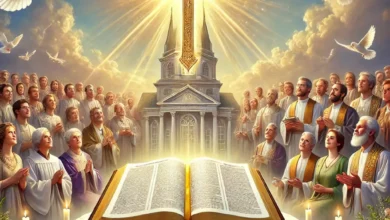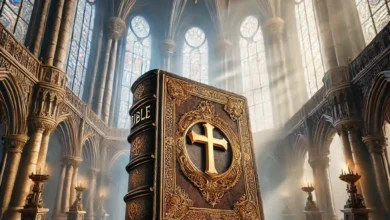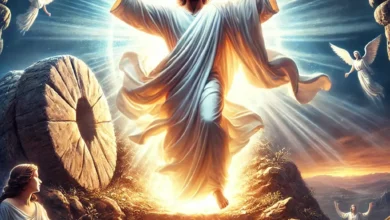
What Is the Significance of Locusts in Revelation?
The locusts in Revelation are symbolic creatures described in chapter 9. Depending on the religious interpretation, different meanings are considered for them.
فرست محتوا
The importance of locusts in Revelation
The Revelation of John is a symbolic and apocalyptic book in the New Testament, full of strange images and creatures. One such symbol is the locusts described in chapter 9. To understand the importance of locusts in Revelation, we need to consider two aspects:
1. The foundation of the Book of Revelation:
Before we delve into the symbolism of the locusts, it is important to understand the overall context of this apocalyptic text. The word “revelation” in Greek means “revealing”, “revealing” and “revealing” something that was previously unknown.
The book of Revelation was written by the apostle John, who was exiled to the island of Patmos by the Roman Empire for preaching the gospel.
In this book, John receives messages from Jesus to the seven churches, along with visions of the last days. (Revelation 1:1, 2).
Persecution by the Romans was common to the seven churches of Asia Minor, namely Ephesus, Smyrna, Pergamum, Thyatra, Sardis, Philadelphia and Laodicea.
As both pastor and overseer of these churches, John wrote a unique letter addressed to those oppressed churches who are “written in the book of life” to remain faithful during persecution and to be sure of eternal victory. to be

2. The symbolic interpretation of locusts in Revelation:
The meaning of locusts in Revelation varies depending on religious interpretation. Two common views are:
Divine Punishment: Some interpretations consider locusts to be a symbol of divine destructive disasters. They are described in gruesome detail and said to harm people and their crops. This interpretation is consistent with the concept of God’s final judgment in Revelation.
Satanic Forces: Another interpretation sees locusts as a symbol of evil forces that mislead and deceive humanity. They hurt people with power and authority, but they do not have complete control over them (Revelation 9:4-5). This interpretation emphasizes the constant struggle between good and evil in the world.
Revelation chapters 6-19 detail the impending seven-year tribulation period that represents God’s judgment on wickedness.
The church, raptured after chapter 3, now dwells with God in heaven. On earth, God’s wrath will be unleashed along with the proclamation of “the gospel…to every nation, tribe, tongue, and people” (Revelation 14:6).
An angel is flying and asks all nations to “fear God, give him glory and worship him because the hour of his judgment has come” (14:7). Those who reject this divine call will face the consequences of condemnation and eternal separation from a merciful God.
The importance of locusts in Revelation (end)
Theological and contemporary relevance
The symbolism of locusts in Revelation prompts readers to reflect on God’s divine judgment with a contemporary connection.
The next rapture seems imminent, and the next tribulation period is seen as a precursor to God’s kingdom in the new heavens and new earth (Revelation 21-22).
God’s purpose for the salvation of the people of Israel and the lost will be realized by the repentance of those who come out of the great tribulation: “They have washed their robes and made them white in the blood of the Lamb” (Revelation 7:14).
Revelation 18 announces the eternal condemnation of Babylon the Great, the symbol of all the world’s evil systems and powers, the rulers and the antichrist.
Rebellion against God’s authority and salvation will be condemned forever. “Whoever’s name was not found in the book of life was thrown into the lake of fire” (Revelation 20:15).
God promised David an eternal generation on the throne: “Your house and your kingdom will be established forever before me, and your throne will be established forever” (2 Samuel 7:16).
This prophecy is fulfilled through Jesus: “Of the greatness of his kingdom and of his health there will be no end.” He will reign on the throne of David forever” (Isaiah 9:7).
Today in the article : What Is the Significance of Locusts in Revelation? We reviewed useful information about the Bible and the way of Jesus. If you wish, you can view other articles of Ali Vahidi about Christianity





